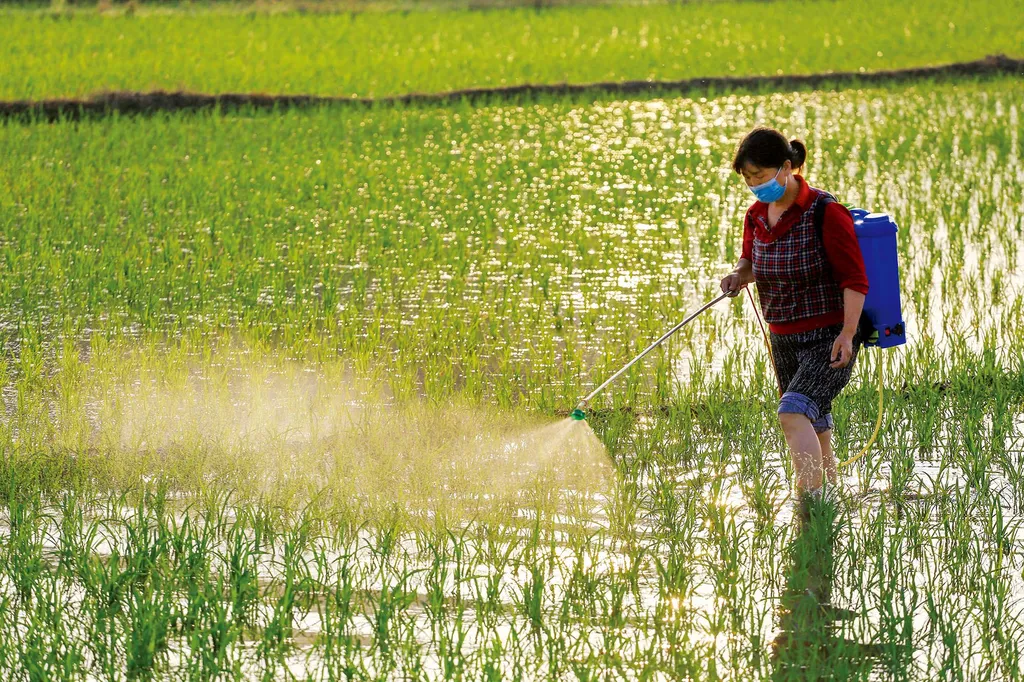In the heart of China’s vast rice paddies, a delicate balance is being struck between the need to reduce pesticide use and the imperative to maintain food security. New research published in *Frontiers in Sustainable Food Systems* sheds light on this complex dynamic, offering insights that could reshape pest management strategies and agricultural policies.
The study, led by Yanzhong Huang, delves into the intricate relationship between pesticide reduction and rice yield, using data from 1,120 rice farmers across China. The findings reveal a critical threshold: a 33.25% reduction in pesticide use. Below this threshold, rice yields remain stable, suggesting that moderate pesticide reduction does not compromise agricultural productivity. However, exceeding this threshold can lead to diminished pest control effectiveness and potential yield losses.
“This study underscores the importance of a nuanced approach to pesticide reduction,” says Huang. “It’s not about drastic cuts but about scientific, localized strategies that balance environmental concerns with food security.”
The research also highlights the compounding effects of climate change. Extreme weather conditions such as drought, flooding, and high temperatures exacerbate pest outbreaks, making rice crops more vulnerable. In such scenarios, excessive pesticide reduction can further jeopardize yield stability.
For the agriculture sector, these findings carry significant commercial implications. Farmers and agribusinesses must navigate the fine line between sustainable practices and economic viability. The study suggests that dynamic, flexible performance assessment targets for pesticide reduction are essential to cope with the impacts of climate change.
“Policy makers should avoid a one-size-fits-all approach,” advises Huang. “Local conditions and climate variability must be taken into account when developing pesticide reduction plans.”
As the world grapples with the dual challenges of environmental sustainability and food security, this research offers a roadmap for balanced, science-based decision-making. It calls for a shift towards adaptive, localized strategies that can withstand the pressures of a changing climate.
In the words of Huang, “The future of agriculture lies in our ability to adapt. By understanding these thresholds and tailoring our approaches accordingly, we can ensure both environmental sustainability and food security.”
The study, led by Yanzhong Huang and published in *Frontiers in Sustainable Food Systems*, provides a crucial foundation for future developments in pest management and agricultural policy, guiding the sector towards a more resilient and sustainable future.

